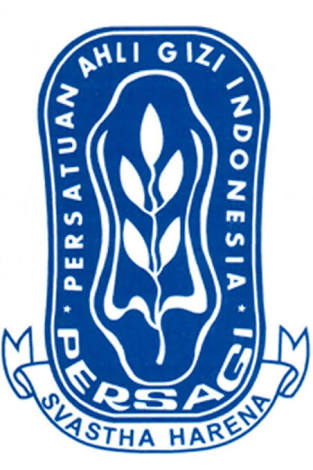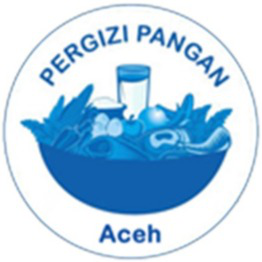The Relationship between Environmental Factors and Nutritional Status on Malaria Incidence in Woyla District, West Aceh Regency
Abstract
Malaria is one of the main causes of death in many developing countries, which until now is still spread in the tropics and subtropics. This study aims to determine the relationship between environmental factors and nutritional status with the incidence of malaria in the Kuala Bhee Health Center Work Area, West Aceh Regency.
This study uses a case control or retrospective study design. The case group was recorded as malaria patients based on registration data at the Kuala Bhee Health Center, Woyla District, Aceh Regency and resided in the working area of the Kuala Bhee Health Center, Woyla District, West Aceh Regency, while the controls were all people who were declared free of malaria.
The results showed that the presence of livestock cages and the presence of standing water had a significant relationship with the incidence of malaria.
It is recommended to the public to avoid activities outside the home at night by reducing the frequency of going out or not leaving the house during active hours of biting malaria vector mosquitoes, cleaning livestock cages and eliminating puddles around their homes.
Full Text:
PDFReferences
Bambang H. (2005) Kandang Ternak dan Lingkungan Kaitannya dengan Kepadatan Vektor Anopheles Aconitus di Daerah Endemis Malaria (Tesis).
Barodji. (2001) Keberadaan ternak sapi atau kerbau di daerah pedesaan dan pengaruhnya terhadap vektor malaria. Pertemuan Sosialisasi Penanggulangan Malaria di Kabupaten Kulonprogo, DIY, di Wates.
Bretas, G., (1996), Geographic Infor- mation Systems for the Study and Control of Malaria [online], available: http:// www.idrc.ca/books/focus/766/ bretas.html accessed 10 October 2021
Dinas Kesehatan Kabupaten Aceh Barat. (2013). Profil Kesehatan Kabupaten Aceh Barat
Depkes RI. 2012. Pedoman Penatalaksanaan Kasus Malaria di Indonesia. Direktorat Jenderal P2PL, Depkes RI. Jakarta
Devinta. (2012) Hubungan Lingkungan Fisik Rumah dan Perilaku Individu dengan Kejadian Malaria di Kabupaten Purworejo (Tesis).
Gunawan S. (2000). Epidemiologi malaria. Dalam: Harjanto PN, penyunting. Malaria: patogenesis, manifestasi klinik dan penanganan. EGC, Jakarta
Harohalli RS, Donna GG. Malnutrition. (2006). Diunduh dari http://www.emedicine.medscape.comlartic le/985140-overview. accessed 10 September 2021
Mouchet, J., (1998), Origin of malaria epidemics on the plateaus of Madagascar and the mountains of east and south Afri- ca, Bull Soc Pathol Exot 1998;91(1):64- 6.
Mukono, H. J. (2009) Prinsip Dasar Kesehatan Lingkungan. Surabaya: Airlangga University Press, 2009.
Prabowo. (2008) Malaria Mencegah dan Mengatasinya. Puspa Swara, Jakarta.
Saikhu Ahmad. (2007). Faktor Risiko Lingkungan Dan Perilaku Yang Mempengaruhi Kejadian Kesakitan Malaria Di Propinsi Sumatera Selatan (Analisis Lanjut Data Riset Kesehatan Dasar 2007). Journal litbang kemkes.
Sembel, D. (2009) Entomologi Kedokteran. Ed I. Andi. Yogyakarta.
Suwadera. (2010). Analisis Hubungan Antara Kondisi Ventilasi, Kepadatan Hunian, Kelembaban Udara, Suhu, Dan Pencahayaan Alami Rumah Dengan Kajadian Malaria Di Wilayah Kerja Puskesmas Wara Utara Kota Palopo. Jurnal FKM Universitas Samratulangi 2(2): 5-8.
Rice, Tallud P, Andaman. (2007). Interactive Resource For The Rational Selection And Comparison Of Putative Drug Target Proteins In Malaria. Malaria Journal 8(5): 12-18.
Valeriana S Mayagaya, Gamba Nkwengulila, Issa N Lyimo, Japheti Kihonda, Hassan Mtambala, Hassan Ngonyani, Tanya L Russell and Heather M Ferguson. (2015). The impact of livestock on the abundance, resting behaviour and sporozoite rate of malaria vectors in southern Tanzania. Malaria Journal.
DOI: https://doi.org/10.35308/jns.v2i2.4309
Refbacks
- There are currently no refbacks.
Managed by Department of Nutrition, Faculty of Public Health
Published by Universitas Teuku Umar ,
Website: http://jurnal.utu.ac.id/JNS/index
Email: jns@utu.ac.id
Phone/Fax: +62-852-7736-5563; E-mail:
This work is licensed under a Creative Commons Attribution-ShareAlike 4.0 International License.














